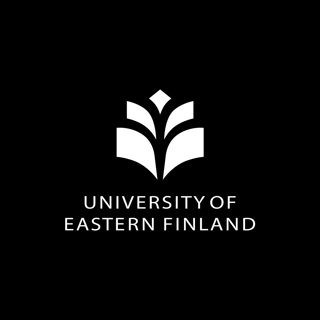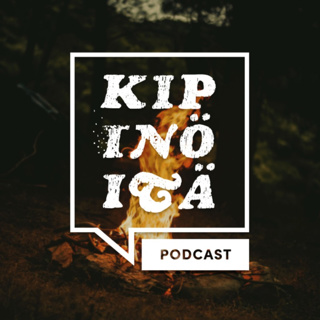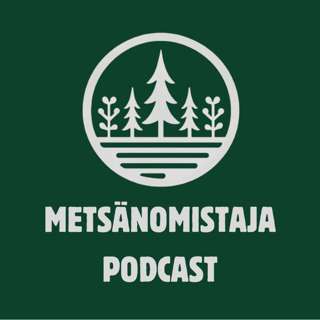
The Grenfell cladding
As the long-awaited final report into Grenfell Tower is made public, we look at the cladding that has been at the centre of the story for seven years. We ask Richard Hull, an expert in chemistry and fire science who’s been following the story, why it was used in the first place and what made it so dangerous. Also this week, the neuroscience of the Oasis queue, the technology powering Paralympic athletes and strange sounds from space... Presenter: Victoria Gill Producers: Sophie Ormiston, Ella Hubber & Gerry Holt Editor: Martin Smith Studio Manager: Emily Preston Production Co-ordinator: Andrew Rhys Lewis
3 Loka 202428min

Predicting everything
The Royal Society recently announced the shortlist for their annual Science Book Prize – and nominated is science writer and journalist Tom Chivers, author of the book Everything is Predictable. He tells us how statistics impact every aspect of our lives, and joins Marnie as a studio guest throughout the show.A drug – lecanemab – that can slow the progression of Alzheimer’s disease has recently been approved for use in the UK, but the healthcare regulator NICE has said that it won’t be available on the NHS. But what is behind this decision, and what makes creating an Alzheimer’s drug so difficult? Professor Tara Spires-Jones from the University of Edinburgh talks us through the science.And could ‘smart paint’ supersize our fruit and veg? Reporter Roland Pease heads over to the experimental greenhouses of Cranfield University’s crop science unit to see if the technology works.Thee Paralympic Games are now underway in Paris, with athletes competing across 22 different events. But as competitors have a range of different impairments, how is it ensured that there's a level playing field? Professor Sean Tweedy from the University of Queensland calls in from Paris to explain how athletes are sorted into categories for competition.Presenter: Marnie Chesterton Producers: Sophie Ormiston and Ella Hubber Editor: Martin Smith Production Co-ordinator: Andrew Lewis
26 Syys 202434min

Why aren’t we eating more insects?
We try some cricket tacos and ask what role insects might play in our future diets, in a special programme with a live audience at Green Man Festival in the Bannau Brycheiniog National Park in Wales. Our panellists: Peter Smithers, an entomologist and fellow of the Royal Entomological Society Aaron Thomas, co-founder of Yum Bug, which makes meat out of crickets Dr Emily Porter, a dietician and gut health specialist for the NHS and The Gut Health Clinic What else should we explore – and where else should we visit? Send your suggestions to insidescience@bbc.co.uk Presenter: Marnie Chesterton Producer: Gerry Holt Editor: Martin Smith Sound manager: Mike Cox Production Co-ordinator: Jana Bennett-Holesworth
19 Syys 202427min

Beavers of London
The Ealing Beaver Project has found success as two new beaver kits have been born in a park in London after being reintroduced last October. Marnie visits the site to learn more about the benefits they bring - but beavers are just a drop in the river of urban rewilding. We find out what the practicalities and pitfalls of letting nature take back space in our cities are.Do you feel like your dog is watching you? You're probably right. Zoologist and broadcaster Jules Howard ponders on the human-watching acuity of our beloved pets.And our guts are not the only places where bacterial communities thrive, new research tells us that our microwaves also have a microbiome. Should we be worried?Presenter: Marnie Chesterton Producers: Ella Hubber, Sophie Ormiston and Gerry Holt Editor: Martin Smith Production Co-ordinators: Jana Bennett-Holesworth and Andrew Rhys Lewis
12 Syys 202428min

Going for gold
Today we will be going for gold in more ways than one. Inga Doak, the Head of Sustainability at The Royal Mint, reveals how the company plan to ‘urban mine’ gold from household electronic waste and turn it into jewellery. But with tens of millions of tonnes of e-waste piling up every year, the environment policy adviser at the Royal Society of Chemistry, Izzi Monk unpacks how the UK can clean up its act. Vic puts her stable boots on to visit some very pampered thoroughbred foals to find out what their poo can reveal about their future success on the racecourse. From horses to humanity, sports geneticist Alun Williams discusses how our genetic make-up could determine whether or not we are destined for gold at the Olympics. Plus, Roland Pease channels his inner child to investigate his youthful obsession with Mars as NASA looks for new microbial life on the red planet. Presenter: Victoria Gill Producers: Ben Mitchell and Ella Hubber Editor: Martin Smith Production Co-ordinator: Jana Bennett-Holesworth
5 Syys 202428min

How much of a risk is space junk?
Space junk. It might sound like an out-of-this-world problem that we don’t need to worry about here on Earth – but is it? As we send more and more metal in the form of satellites up into space, scientists are warning it is becoming more of a risk both here – and up there. We dig into the problem and what’s being done to clean it up. Also this week, we answer a listener question about oceans and their influence on global temperatures, and we ponder the use – and sometimes abuse – of scientific language. And with the Paris Olympics well under way, how much does sex affect sporting performance? Presenter: Victoria Gill Producers: Ella Hubber & Gerry Holt Editor: Martin Smith Production Co-ordinator: Jana Bennett-Holesworth
29 Elo 202428min

CERN’s Supercollider Plan
CERN’s plans to build a bigger, faster particle collider, with a hefty 17 billion Euro price tag, are in question. Physicists Andrew Pontzen and Harry Cliff discuss if the new machine is really worth it. A place on the podium or disappointment in the Olympics can come down to the precise position of a foot or angle of the hips. Science reporter Ella Hubber visits the University of Bath to check out the motion capture tech that makes these measurements. New research suggests our close cousins, the chimpanzees, chat just as fast as humans. Professor Cat Hobaiter from the University of St Andrews tells us what chimp chats can teach us about the evolution of language. 75 years after making a groundbreaking discovery, Rosemary Fowler has finally been awarded with an honorary doctorate. University of Bristol chancellor, Sir Paul Nurse, shares how important it is to celebrate and recognise Rosemary’s achievements.Presenter: Victoria Gill Producers: Ella Hubber and Sophie Ormiston Editor: Martin Smith Production Co-ordinator: Jana Bennett-Holesworth
22 Elo 202428min

Should Antarctica be off limits?
Antarctica is a 'natural reserve, devoted to peace and science' - that’s according to an international treaty. But with visitor numbers at a record high, how does tourism fit into that – and what kind of impact is it having on its fragile ecosystem? We discuss whether tourists – and even scientists – should be allowed to go at all. Swimming in the Seine has been banned for more than a century because of pollution concerns. The main culprit? Human waste. We find out if it really will be safe in time. And every summer we ready ourselves for 'flying ant day' – that one day where winged ants take to the skies across Britain. Or do they? Presenter: Victoria Gill Producers: Sophie Ormiston, Ella Hubber and Gerry Holt Editor: Martin Smith Production Co-ordinator: Jana Bennett-Holesworth
15 Elo 202428min





















